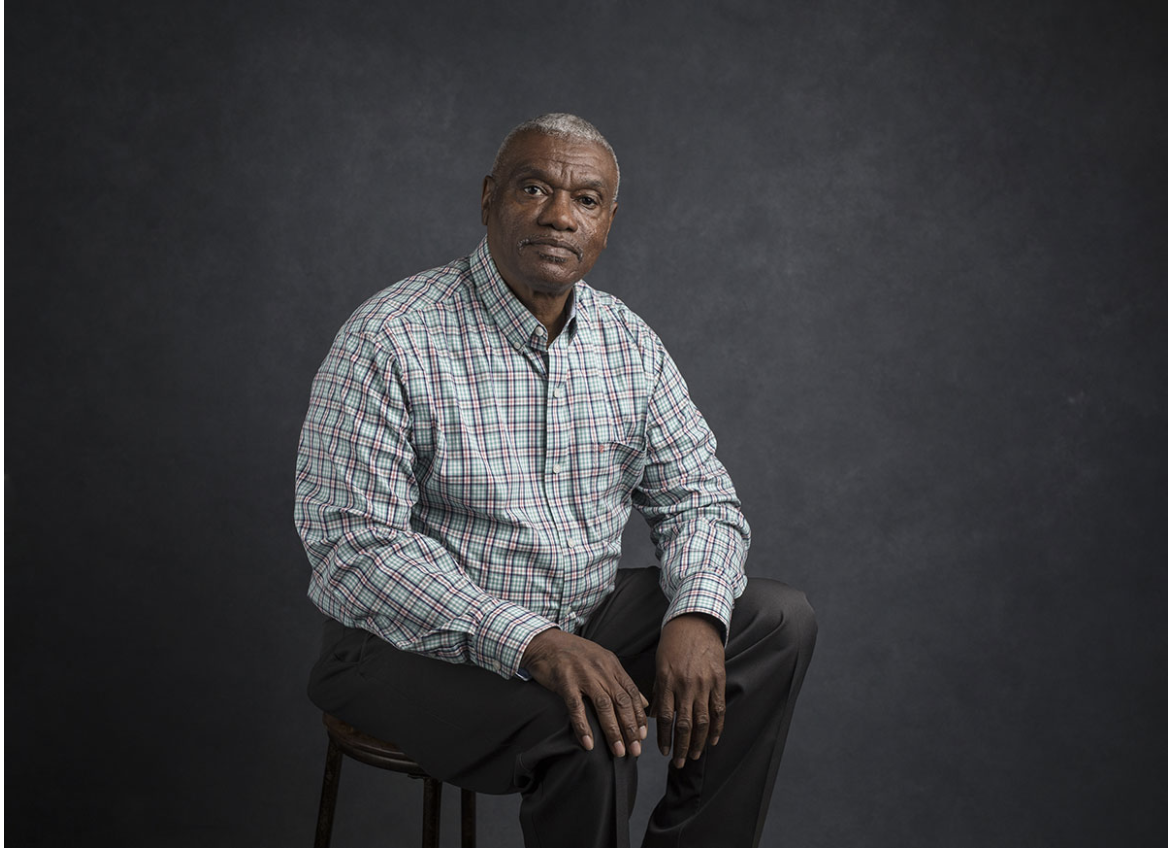
Wilbert Jones, client of IPNO, exonerated after serving 45 years as an innocent prisoner. Photo Credit: Olivia Grey Pritchard Photography.
On October 11, 2018, the State of Louisiana exonerated Wilbert Jones after serving 45 years in prison for a rape he did not commit. During the trial, the victim identified discrepancies between the identities of the suspect and the perpetrator. Dismissing these concerns, the court convicted Jones in 1973. Twenty-eight years later, Innocence Project New Orleans (IPNO) investigated Jones’s case and discovered that the prosecution had concealed evidence of an alternative suspect, who in fact was the actual perpetrator.
Jones’s case is not anomalous. Studies estimate that the rate of innocence among convicted prisoners is between 4 and 10%. When a defendant is wrongfully convicted, he or she may appeal a verdict in court by presenting new evidence of innocence under constitutional or statutory law. However, a defendant is no longer legally entitled to counsel after a ruling is finalized. As a result, the state has no incentive to provide representation for convicted defendants when they cannot afford their own attorneys.
This is where Innocence Project New Orleans (IPNO) steps in. For the past 20 years, IPNO has dedicated itself to providing free legal representation for prisoners serving life or virtual life sentences in Louisiana and south Mississippi. A virtual life sentence — generally 50 years or more — effectively condemns the inmate to life in prison. Since its founding in 2001, IPNO has exonerated 36 innocent prisoners who have collectively served 873 years in jail.

Jee Park, Executive Director of IPNO
In Louisiana, DNA statutes enable defendants to introduce post-conviction claims by presenting new evidence of innocence through DNA testing. According to Jee Park, executive director of IPNO, DNA evidence is the most straightforward means of exonerating wrongfully convicted prisoners.
“Typically, [DNA] is most useful in single perpetrator cases like a single perpetrator rape, or perpetrator murder, where there is evidence at the scene that was touched or left by the perpetrator,” Park said. “We know that if we test the DNA from that piece of evidence, it has the perpetrator’s DNA.”
However, DNA evidence is only available in about 5-10% of criminal cases. When DNA testing is not possible, IPNO can introduce its cases into court by showing that a constitutional violation occurred during the convicted defendant’s trial. In Jones’s case, IPNO showed that the prosecutors had violated the Brady Rule under the Fifth Amendment right to due process. According to the Brady Rule, prosecutors are obligated to disclose evidence favorable to the defense during the trial.
“What the state had in their possession was information of an alternative suspect in that case, which they had never turned over to the defense,” Park said. “Because the state had never turned that evidence over to Wilbert’s trial attorney, Wilbert did not get a fair trial.”
IPNO can also bring its claims into court by showing that the defendant was denied his right to effective assistance of counsel under the Sixth Amendment. For example, IPNO exonerated its client Jerome Morgan by showing that his attorney failed to provide reasonable representation. Morgan served 20 years after being convicted for a murder at a New Orleans hotel. After having conversations with community members, IPNO discovered that Morgan’s neighbors, friends, and family all knew that another perpetrator had committed the crime.
“We have attorneys who are overworked, especially public defenders or court-appointed attorneys who are overworked or under-resourced, so they don’t have the funds or the resources to consult with an expert or conduct necessary testing,” Park said. “If [Morgan’s] attorney had done some reasonable investigations, that attorney would have learned information that would have shown that our client was actually innocent.”
In addition to its legal work, IPNO also maintains a social worker staff designed to help freed prisoners reintegrate into society. That staff helps its clients provide essential resources such as job security, retirement savings, stable housing, medical attention, and mental health counseling. According to Park, a significant issue for exonerated clients such as Jones and Morgan is that they did not accrue social security while they were in prison.
“Despite the fact that he worked all day while he was in prison, [Jones] received prison wages, which is like five cents an hour,” Park said. “Those don’t count toward his social security, and so when he comes home at age 64, and he has no safety net for him, we’re trying to figure out how he is going to have the basic resources he needs so that he can take care of himself and others of his family.”
Beyond its representational work, IPNO also works with legislators to change policies and rules that contribute to a higher likelihood of wrongful convictions. One such issue IPNO has addressed is faulty eyewitness identification reports. In 2018, IPNO contributed to passing a Louisiana law that allows memory and social psychologists to testify about the integrity of eyewitness identifications.
“We know that eyewitness misidentifications are one of the leading factors contributing to wrongful convictions, and yet not until three years ago did Louisiana have a comprehensive eyewitness identification procedure involved that outlined to law enforcement what are the best practices,” Park said.
Park also cites a lack of transparency in the police system as an underlying cause of unjust verdicts. Because the state keeps police records confidential, the public may not know whether an officer has previously used unnecessary force against an arrestee. Park believes that improving police accountability is a crucial step toward ensuring the fair administration of justice.
“As a person in the public who is safeguarding the well-being of the public, the public has a right to know whether or not they are doing their job well and in a dignified manner,” Park said. “Yes, police officers are needed, and yes, we respect the police officers, but it has to be a two-way transparency and accountability mechanism.”
 NOLAbeings Multimedia artist Claire Bangser created NOLAbeings as a portrait-based story project that marries...
NOLAbeings Multimedia artist Claire Bangser created NOLAbeings as a portrait-based story project that marries...  Voodoo in New Orleans: Reviving history: New Orleans fortune telling This article takes a deep dive into the history of Voodoo in New Orleans, its hybridization with Catholicism, and its present-day place in the city's culture. The author visits fortune-tellers in the French Quarter, using their guidance as a tool for introspection rather than a deterministic predictor of the future. Through her experiences in New Orleans, the author feels a mystical connection to both the past and the future.
Voodoo in New Orleans: Reviving history: New Orleans fortune telling This article takes a deep dive into the history of Voodoo in New Orleans, its hybridization with Catholicism, and its present-day place in the city's culture. The author visits fortune-tellers in the French Quarter, using their guidance as a tool for introspection rather than a deterministic predictor of the future. Through her experiences in New Orleans, the author feels a mystical connection to both the past and the future. 